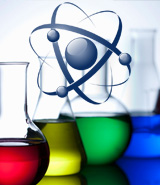Quantum computing technology is the latest trend in science to develop models, calculate equations and determine long term trends for phenomenon which are out of the scope of a human’s lifespan. With the integration of new materials such as CuPc advancements in the quality of quantum computers may increase in the coming years.

Science News
Science is the study of the world around us and is divided into a myriad of subdisciplines to allow a scientist to specialize in a specific set of knowledge. Science is characterized by its ability to be proven time and again through testable experiments and helps humans to explain the known universe. Some of the most commonly known disciplines include biology, chemisty, physics, geology and oceanography (earth sciences) and astronomy. In recent years science has been attributed to the pursuit of knowledge and not the actual knowledge its self.
Plant communication is being researched by biologists and chemists alike to determine the various methods and purposes of communication between plants and insects. It has been discovered that this can be done through chemical signals in pheromones, audio detection and even electromagnetic fields give off by flowers for bees to pick up on.
How does echolocation work and what is it? Echolocation is a unique ability which uses sound waves to map an area by reflecting sound off objects to detect distance. This is used by dolphins, whales, bats, shrews and some other mammals throughout the animal kingdom. Some blind humans now use this ability to help them navigate independently.
Pyrosequencing was once the most efficient way to determine extinct species of marine life however new research from scientists have determined more efficient ways to identify and categorize extinct species of plankton in the Black Sea. A new genetic data record has been unveiled using this process by biologists.
Bacterial communication has been discovered to occur using the transmission of chemical signals which are synthesized in the pyrone synthase (PpyS) and received in the LuxR solo receptor (PluR). Recently Professor Helge Bode and Dr. Ralf Heermann from Goethe-University in Frankfurt, Germany have discovered that it is possible for both transmission and reception to occur within the LuxR solo receptors of bacterial cells.
Science is responsible for most of the technological developments that have been implemented by humanity in our day to day lives. Many things which are often taken for granted such as our cell phones, automobiles, fuel and electricity were all devised and refined through scientific experiments. Scientific knowledge is typically classified in two manners, as a theory or law (proven to through repeated experiments to produce the same result).





